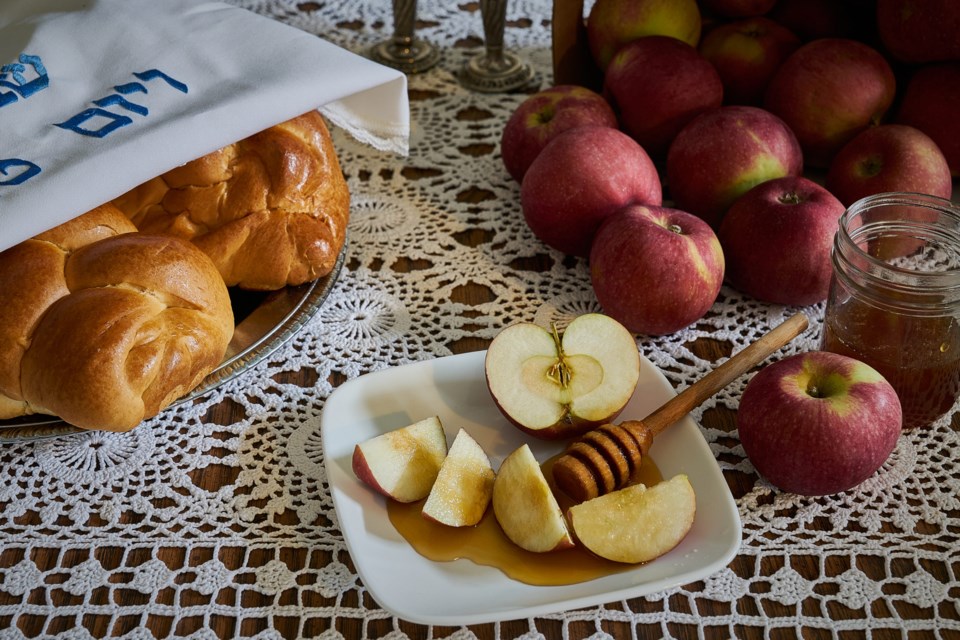The Jewish New Year, Rosh Hashanah, begins at sunset on Monday, Sept. 22.
Rosh Hashanah is a time of reflection, renewal and celebration. It marks the beginning of the High Holy Days, a 10-day period of introspection and repentance leading up to Yom Kippur, the Day of Atonement. It also marks the beginning of a new year on the Jewish calendar — year 5786.
Rosh Hashanah, which translates to "head of the year" in Hebrew, is a two-day holiday celebrated by gathering for festive meals with family and friends, observing meaningful traditions and setting intentions for the year ahead. It ends after nightfall on Wednesday, Sept. 24.
Gathering with loved ones for festive meals is a cherished tradition during Rosh Hashanah. During meals, foods like apples dipped in honey symbolize the hope for a sweet and prosperous year ahead. Challah, a braided bread, is baked in a round shape to represent the cycle of life and the continuity of creation.
Many Jewish people will attend synagogue services for two days in a row. During services, Jewish communities reflect on the past year, its challenges and triumphs as they set intentions for a positive year ahead. Like the secular new year on Jan. 1, it's an opportunity for a fresh start.
One of the central traditions on Rosh Hashanah is the blowing of the shofar: a musical instrument made out of a ram horn. Its clear, piercing sound is a celebratory wake-up call for spiritual reflection and self-improvement.
Many Jewish communities will gather after services on the first day to symbolically cast away one's sins by tossing bread crumbs into flowing water — a custom called tashlich. This act of repentance and reflection is a chance to let go of past mistakes and set a positive intention for the future.
To wish someone a happy Rosh Hashana, you can say "shana tova umetuka, " meaning "have a good and sweet new year" in Hebrew.




